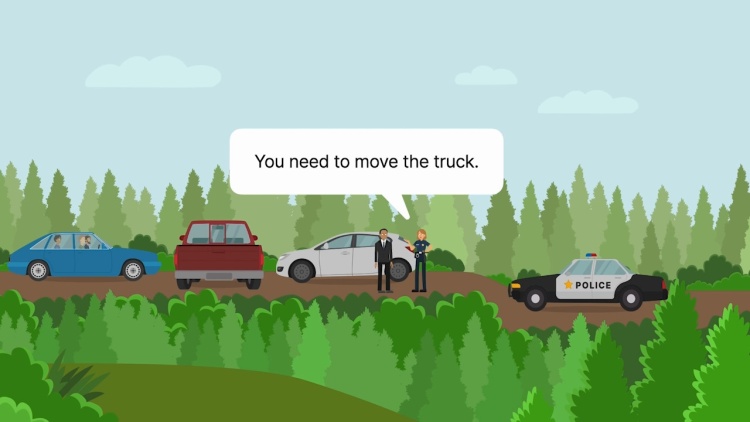Barrett v. Watkins
New York Supreme Court, Appellate Division
82 A.D.3d 1569 (2011)

- Written by Eric Cervone, LLM
Facts
Robert Barrett (plaintiff) was driving through a remote public park. When Barrett and his passengers attempted to leave the park, they found that the access road was blocked by an unoccupied truck. Barrett honked his horn, and Wade Ebert appeared. Ebert, the owner of the truck, refused to move. Ebert then called Steven Dubrovsky (defendant), whose company owned the area next to the park. Barrett testified that Ebert told him that Ebert worked for Dubrovsky. Dubrovsky arrived and told Barrett that he did not belong there and that he didn’t care if Barrett had to sit there all night. Dubrovsky then got into his vehicle with Ebert and left Barrett behind. The police later arrived and instructed Ebert to move the truck. Ebert told the police that he was ordered to block the road in order to prevent Barrett from leaving the area. Barrett brought suit, claiming unlawful imprisonment. Dubrovsky moved for summary judgment, claiming that Barrett was not actually confined because Dubrovsky believed there was another way out of the park. Dubrovsky also denied that Ebert worked for him or that he directed Ebert to prevent Barrett from leave. Dubrovsky also claimed that there were no facts connecting him to Ebert’s actions. The lower court granted Dubrovsky’s motion for summary judgment and dismissed the complaint. Barrett appealed.
Rule of Law
Issue
Holding and Reasoning (Peters, J.)
What to do next…
Here's why 907,000 law students have relied on our case briefs:
- Written by law professors and practitioners, not other law students. 47,100 briefs, keyed to 996 casebooks. Top-notch customer support.
- The right amount of information, includes the facts, issues, rule of law, holding and reasoning, and any concurrences and dissents.
- Access in your classes, works on your mobile and tablet. Massive library of related video lessons and high quality multiple-choice questions.
- Easy to use, uniform format for every case brief. Written in plain English, not in legalese. Our briefs summarize and simplify; they don’t just repeat the court’s language.





